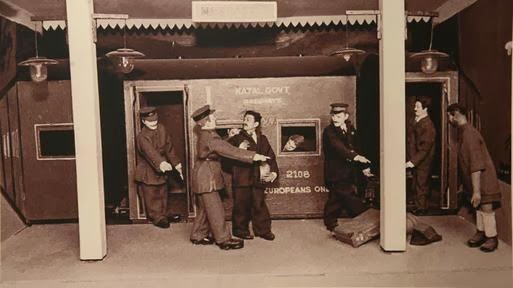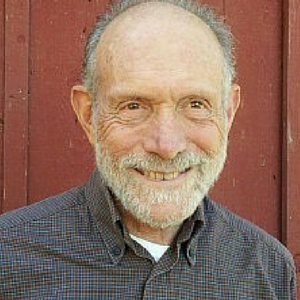
TODAY, June 6, marks the anniversary of the Allied invasion of Normandy in 1944. It is also, given the time difference, the day in 1893 (June 7th, over there) that Mohandas Gandhi was thrown off a train at Pietermaritzburg, South Africa. The former event marked the beginning of the end of World War II. The latter — if we can truly grasp its significance — marked the beginning of the end of all wars.
In 1893 Gandhi was not yet styled “Mahatma,” or Great Soul — an appellation he disliked intensely — and the word “nonviolence” had yet to enter the English language. The violence that was temporarily suspended, or shall we say rearranged, in WWII continues unabated, in many forms. But nonviolence is slowly gaining on it.
Two years after the conclusion of WWII the British domination of India also came to an end. Moreover, some fifty other nations got free of one or another form of colonialism; it could be said that an entire dark period of history came to an end. This can be attributed, at least indirectly, to the loss of prestige of Europe and the West after its two brutal internecine wars, but it can be attributed much more directly to India’s freedom struggle, at the climax of which, the Salt Satyagraha of 1930, an American journalist, Webb Miller, wired in to the Chicago Tribune that “any ascendancy the West had over India was lost here today.”
But there is an even greater significance to what began that night in Pietermaritzburg and led to Independence Day, 15 August, 1947, for on that day Great Britain and India together, amicably, declared India free. As British historian Arnold Toynbee wisely noted, “He (Gandhi) made it impossible for us to go on ruling India. But he made it possible for us to leave without rancour and without humiliation.”
It was his utter refusal to accept humiliation or inflict it on anyone, no matter their cruelty and shortcomings, that moved Gandhi not to run back to India but to stay and fight what Europeans had done to him at Pietermaritzburg.
Since India’s Independence Day the world has seen (if you know where to look) a remarkable growth in both the quantity and quality of nonviolence; in the number of places where it has been applied, almost always successfully, the range of techniques people have learned, and the various schools and programs where they can learn it — including, of course, the essential “finishing school” of direct experience.
Yet the celebrations of Normandy will be far greater and more widely recognized than whatever celebration we will see of Pietermaritzburg, and that is a measure of how far we have yet to go in learning what makes for a successful life that takes us closer, rather than further, to the fulfillment of human destiny.








